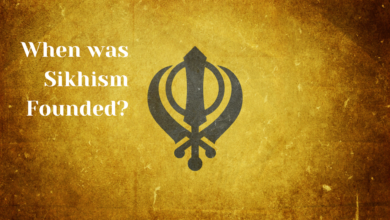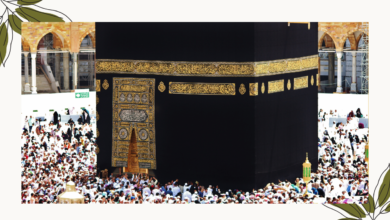Khadija bint Khuwaylid – Reflection Of Values
The Enduring Legacy of Khadija: Values for Today and Tomorrow
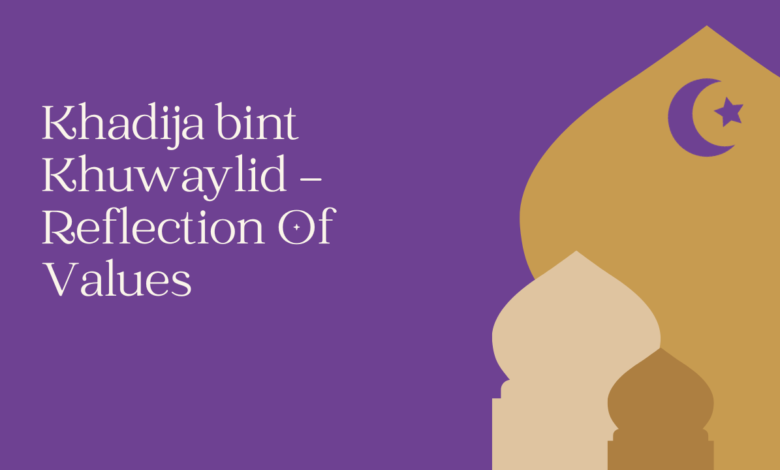
Khadija bint Khuwaylid – Reflection Of Values
Khadija bint Khuwaylid was the first wife of Prophet Muhammad and a prominent figure in Islamic history. She was known for her exceptional character and contributions to early Islam.
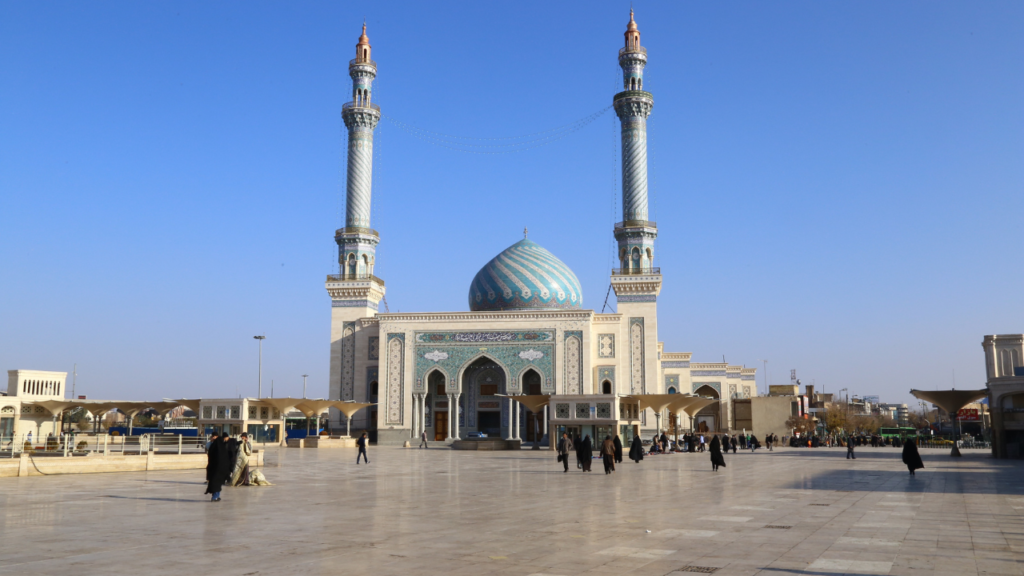
Introduction
In the annals of history, there are few figures whose lives resonate with enduring values and timeless principles. Khadija bint Khuwaylid, the first wife of Prophet Muhammad, stands as a luminous exemplar of such values. Her life, marked by qualities of strength, courage, compassion, and entrepreneurship, continues to inspire people across cultures and generations. Khadija’s legacy is a reflection of values that remain as relevant today as they were over a millennium ago.
Integrity and Honesty
Khadija was renowned for her impeccable character and unwavering integrity. Her business acumen was underpinned by an unshakable commitment to honesty and fair dealing. At a time when the Arabian Peninsula was rife with deceit and corruption, Khadija’s reputation shone brightly. Her honesty in trade earned her the title of “Al-Tahira,” meaning “The Pure One.” This commitment to integrity is a value that remains at the heart of ethical business practices today, emphasizing the importance of honesty and transparency.
Also check.
- Why Does Allah Test Us?
- What is Gambling in Islam?
- Why is Hajj Important?
- What is Interest in Islam?
- Why is Pork Haram in Islam?
Empowerment and Entrepreneurship
Khadija was a trailblazing entrepreneur in her own right. She managed a successful business enterprise and was a respected merchant. Her journey is a testament to the potential for women’s empowerment, even in societies where gender roles were often rigidly defined. Khadija’s ability to navigate the world of commerce serves as a timeless reminder that women have the capacity for leadership and entrepreneurship, breaking barriers and charting their own paths.
Compassion and Generosity
Khadija was not only a successful businesswoman but also a woman of great compassion and generosity. She supported various charitable causes and was known for her philanthropic efforts. Her love and concern for the less fortunate underline the universal value of compassion and the importance of giving back to one’s community. Khadija’s example reminds us of the significance of caring for those in need and making a positive impact on society.
Resilience and Faith
Khadija’s life was marked by numerous trials and tribulations, from the challenges of widowhood to the early days of Islam when she and her family faced persecution. Through it all, her unwavering faith and resilience never wavered. Her steadfastness in the face of adversity reflects the enduring value of faith and perseverance. Khadija teaches us that in times of hardship, our faith and determination can see us through, and that challenges can be opportunities for growth.
Gender Equality and Partnership
Khadija’s marriage to Prophet Muhammad was characterized by mutual respect, trust, and partnership. She supported him in his mission and played an instrumental role in the early years of Islam. Their relationship exemplified gender equality and the idea of being equal partners in both personal and professional endeavors. Khadija’s life serves as a reminder of the importance of fostering healthy, supportive relationships built on equality and cooperation.
Conclusion
In conclusion, Khadija bint Khuwaylid’s life serves as a timeless reflection of values that continue to hold significance in our contemporary world. Her integrity, entrepreneurship, compassion, resilience, and commitment to gender equality offer valuable lessons for individuals and societies alike. Khadija’s legacy reminds us that regardless of the era or cultural context, certain core values remain essential for building a just, compassionate, and prosperous society. Her story is a beacon of inspiration, lighting the way for those who seek to live by these enduring principles.
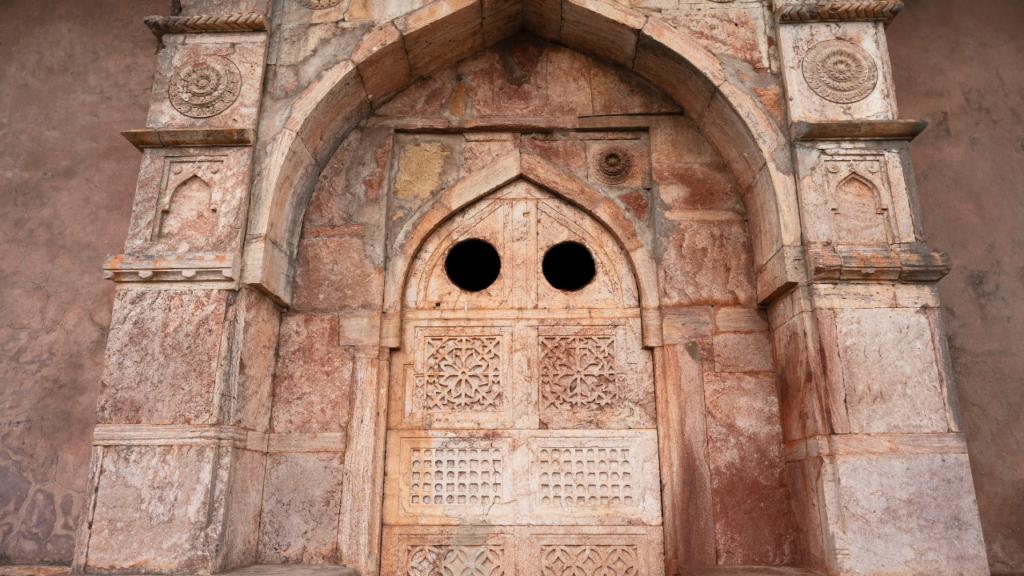
FAQs
Who was Khadija bint Khuwaylid?
Khadija bint Khuwaylid was the first wife of Prophet Muhammad and a prominent figure in Islamic history. She was known for her exceptional character and contributions to early Islam.
What values did Khadija bint Khuwaylid exemplify?
Khadija exemplified values such as integrity, honesty, entrepreneurship, empowerment, compassion, generosity, resilience, faith, and gender equality.
Why is Khadija often referred to as “Al-Tahira” (The Pure One)?
Khadija earned the title “Al-Tahira” due to her impeccable honesty and integrity in her business dealings, making her a model of purity and honesty.
How did Khadija demonstrate entrepreneurship and empowerment?
Khadija managed a successful business enterprise in a male-dominated society, showcasing her entrepreneurial skills and challenging traditional gender roles.
What role did Khadija play in supporting charitable causes?
Khadija was known for her philanthropic efforts, supporting various charitable causes and demonstrating a commitment to helping the less fortunate.
How did Khadija’s faith and resilience play a role in her life?
Khadija’s unwavering faith and resilience were evident throughout her life, particularly during times of adversity, highlighting the importance of these values in overcoming challenges.
What is the significance of Khadija’s partnership with Prophet Muhammad?
Khadija and Prophet Muhammad’s partnership was marked by mutual respect and cooperation, setting an example of gender equality and supportive relationships.
How does Khadija’s legacy continue to inspire people today?
Khadija’s legacy inspires people by reminding them of the enduring values she embodied, which are still relevant in contemporary society, encouraging individuals to live by these principles.
Are there any specific stories or anecdotes that highlight Khadija’s values?
Yes, there are many stories and anecdotes that showcase Khadija’s values, such as her support for the early Islamic community and her resilience during challenging times.
How can we apply Khadija’s values in our daily lives?
To apply Khadija’s values in our daily lives, we can strive for honesty, integrity, compassion, resilience, and equality in our actions and interactions with others. We can also support charitable causes and promote empowerment and entrepreneurship, especially for marginalized groups.
